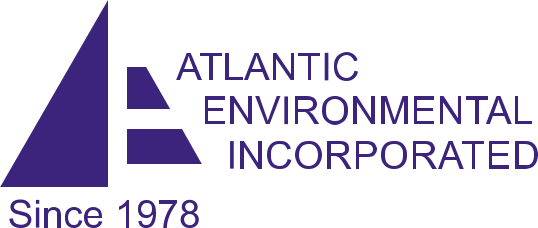If you need assistance with mold in your office making you sick as discussed in this article, call us at 973-366-4660 or e-mail us at info@atlenv.com for details and a free estimate.
Written By: Robert E. Sheriff, MS, CIH, CSP, President
March 10, 2020
Mold and How It Affects Indoor Air Quality (IAQ)
Mold is the single most important element affecting Indoor Air Quality (IAQ). It also can play a significant role in what is termed “Sick Building Syndrome.” In the State of Texas, any testing, consulting, or expert work must be done by a Texas Mold Assessment Technician or a Mold Assessment Consultant. Atlantic Environmental has a Texas Licensed Mold Assessment Consultant, (David McNamara, License No. MAC0413), located in our Dallas/Fort Worth office. Mr. McNamara has 40 years of experience and has acted as a technician, consultant and expert witness in cases involving mold.
When people go to work and start feeling such symptoms as dry throat, coughing, sore throat, nasal congestion, asthma, and they feel better when leaving work, one likely culprit is mold/mildew. Certainly, something is going on in the building to have occupants with such symptoms.
Maybe it isn’t mold! We can address the many types of problems related to IAQ – not just mold! Bacteria, chemicals, sewer gas, carbon monoxide, carbon dioxide, fire residual and suggest corrective measures to IAQ issues.
Mold and Mildew
Even though the term mold and mildew are used interchangeably, they are actually different but both have the ability to cause human ailments. Suffice it to say, the differences are not terribly important to the person in the office where there is evidence of mold/mildew. Both mold and mildew can show visible growth on surfaces and emit offensive odors and affect building occupants.
Molds thrive on organic materials which they can use as a food source. Locations, where heat and moisture have caused deterioration of those surfaces, making them ideal food sources encouraging rapid and extensive growth and propagation of molds. That food can be foodstuffs, leather, cotton, wood, paper, cloth curtains, cloth-covered chairs—especially sheetrock paper, and material latex (the latex from latex rubber trees—not petroleum latex). Solid items as rock, concrete, bricks, and metal are not sources of food for molds but dirt and debris can lodge in pores on these surfaces which can act as a food source for molds. They can also retain moisture, that mold must have to survive and multiply.
In order to grow, molds prefer warm temperatures 70-90°F but can grow in lower temperatures—even down to freezing, and higher temperatures—even up to boilers. In an office environment, the 70-90°F is the temperature range of most molds found in an office environment. The final element for mold growth is moisture/humidity. The optimal range is about 60-90% relative humidity.
Humidity control in an office building is generally the best way to minimize or control mold/mildew.
The most likely places in an office where molds can find the best growth surface to settle upon and grow are:
Basements – Floors on the ground, walls touching dirt, exposed water, and heat piping.
Bathrooms – Around toilets, sinks, showers, walls that enclosed piping that may cause condensation.
Windows – Poorly draining sills, leaking frames, plugged condensate weep holes.
Top Floor Ceilings – Roof leaks, overhead pipe condensate, roof drains. Condensate from HVAC units, skylights.
Kitchen/Break Rooms – Sinks, cooking, exposed and wall interior piping, dishwashers, hot water heaters.
Symptoms Resulting from Mold and Mildew Exposure
Symptoms of mold/mildew reactions are quite varied but most often they affect the respiratory system; sneezing, coughing, sore throat, asthma, respiratory distress, and some allergic reactions.
Do You Suspect Mold?
If mold is suspected or visibly evident, or there are moldy/musty odors in the office, the first step is to have the building tested by a qualified professional. The issue of Indoor Air Quality, Mold, and Sick Building Syndrome are complex are not easily identified and resolved except by an experienced Indoor Air Quality Specialist or Industrial Hygienist.
For more information contact Atlantic Environmental.
Our primary service areas are New Jersey NJ, New York NY, (New York City), Pennsylvania PA, Connecticut CT, Delaware DE, Massachusetts, (Boston) MA, Rhode Island RI, Washington DC, Wisconsin WI, Maryland MD, Michigan MI, Illinois (Chicago) IL, Virginia VA, Indiana IN, Georgia (Atlanta) GA, Alabama AL, North Carolina NC, South Carolina SC, Tennessee TN, Texas (Dallas, Ft Worth) TX, Oklahoma OK, DC, Arkansas AR, Florida FL. We can service most other areas of the U.S. but with some added travel charges.



